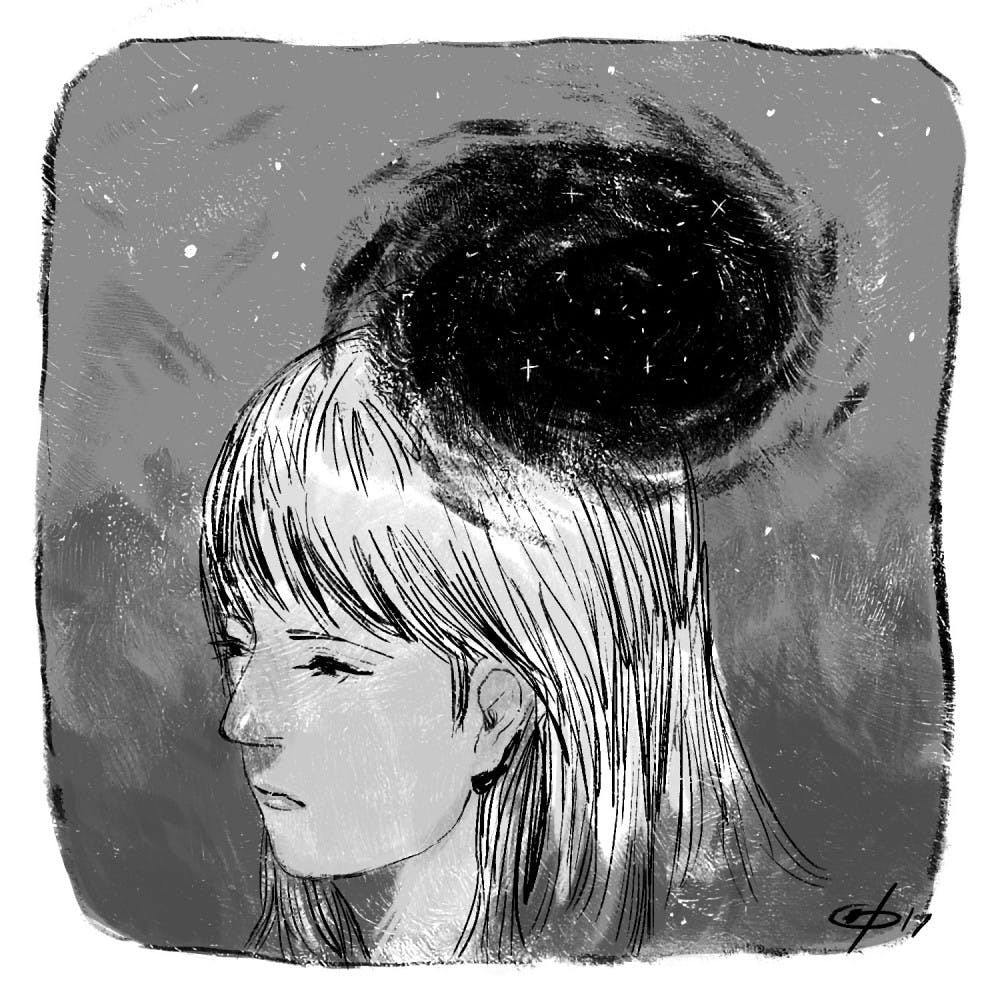This is not an essay about climate change. It's an essay about futile existentialism—and a little bit about climate change.
I’m a researcher in one of the labs in Penn’s Biomedical Research Building. During one of our lab meetings, everyone sat around a table discussing the ethics of genetic editing. Soon, our conversation moved from the inefficacy of educating people about these complicated issues to the problems of climate change.
We briefly debated about the unrealistically exponential growth science would have to achieve in order to solve the crisis. To my surprise, all of the older, experienced scientists in the lab looked to the younger members present. They told us they were relieved climate change would be our burden to bear. They ended the meeting by saying, “we’ll all be dead by the time it really becomes a problem." And they’re not exactly wrong—coastal cities will be going under sooner than most, but we can assume Philadelphia still has some time until we’re all knee–deep in water.
Throughout the whole discussion, I couldn’t help but think, if this was how respected scientists were approaching the climate disaster, what could we possibly do about the sudden burden laid at our feet? I can’t deny that it sent me into a deeply anxious spiral for the rest of the day.
College students are already facing constant stress. It can be hard to face climate change on top of everything else. Not only is it intimidating to even think about, much less actually solve, but it also makes all the other struggles needed to succeed feel meaningless. Nothing can make the existential crisis hit harder than thinking about the fact that anything we do might be for naught. If our work, our effort, our legacy has no future, it can feel useless to even try. What’s the point of getting jobs and trying to do good in a world that is rapidly burning?
Current college students are considered part of Generation Z: between the ages of 15 to 21. We’re one of the most stressed–out generations, worrying about everything from immigration issues to mass shootings. And reports show that Generation Z is “more likely to report mental health conditions than any other generation.” Going hand–in–hand with this, we also report the highest percentage of any generation to seek treatment from mental health professionals, with many rating mental health as fair or poor in surveys.
I can tell you that it’s difficult to work with a therapist about issues like procrastination, time management, or anxiety when everything is exacerbated by an existential crisis that seems to have no solution.
We are disillusioned with the workforce, and with corporate culture, after witnessing other generations fail to move up despite years of hard work or expensive college degrees. Baby boomers keep putting off retirement, making it harder for us to get promising jobs. In the next few years, there will be more unemployed college graduates looking for work than ever before. There will be more workers than available jobs.
Sometimes, when I’m cramming for a midterm with the very intention of getting a job I like in the future, I wonder why I’m doing all this work.
If the planet warms even two degrees Celsius more, we’re essentially doomed. The United Nations’ estimate giving us 12 years to get it together might be generous.
The older researchers in my lab might've have been too optimistic. It's my generation who will literally watch the world melt around us, with climate disaster triggering everything from mass extinctions to global food scarcity. At this point, it’s time to start thinking about how we are going to adapt to climate disaster instead of thinking about the possibility of averting it. Climate change disasters are already happening nearly every week, and sometimes it seems like all we can do is watch.
We all have a lot going on. We’re facing obstacles in almost every aspect of our lives, from our mental health to our job prospects. It’s going to take a lot of work and struggle for us to really get anywhere, and it all feels so meaningless when sometimes all I can do during the day is push back thoughts of impending doom.
But there’s a parable I once heard about starfish that I often think about. In the story, a child throws beached starfish back into the ocean to save their lives. An old man comes by and remarks that there is no way the hundreds of starfish on the beach can be saved—“you can’t even begin to make a difference,” he says. And the child throws another one back in and says, “well, it made a difference to that one.”
There is a kind of comfort in even the most existential of crises. Even though this is a bit morbid, we’ve always known that we’re all going to die one day. And maybe the climate crisis means that we can’t leave a lasting legacy.
But every small fragment of good we put into the world, even a world that is heating beyond control, is meaningful to someone. At the end of the day, these small pieces of hope and human goodness will have to be enough to sustain us.







